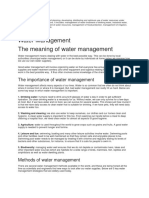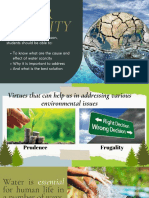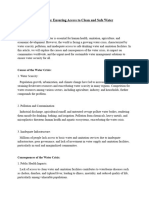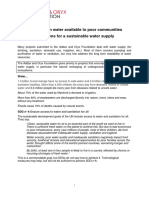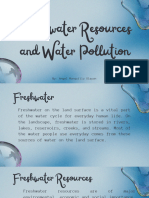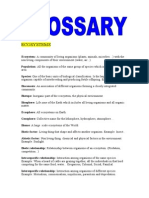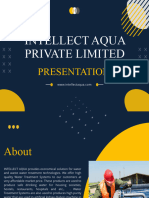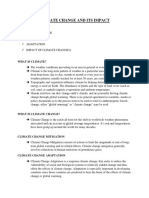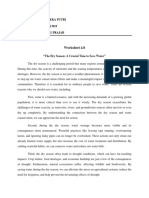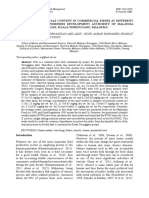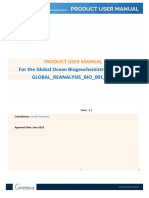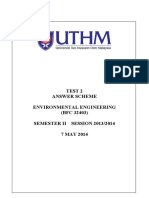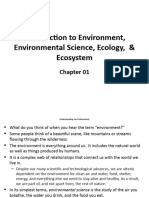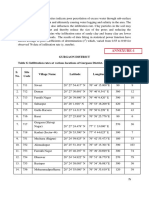Inter disciplinaryprojectScience INDEX:
❖
Introduction

❖
Water pollution
❖
Water scarcity
❖
Need to conserve water
❖
Ancient ways of conserving water
❖
Water conservation schemes
❖
Steps to take to prevent wastage of water
Water
Water is one of the most essential natural resourcesfor life on Earth. It is vital for all living organisms,human activities, agriculture, industry, andecosystems.
Water is a fundamental resource for all life and isintricately tied to our environment, society, andeconomy. As the global population grows and climatechange intensifies, the need to conserve and manage water efficiently becomes even more crucial.Sustainable practices, technological innovations, andpublic awareness are essential to ensure that clean water remains available for future generations.
WATER POLLUTION
⮚
Water pollution occurs when harmful substances—often chemicals or microorganisms contaminate astream, river, lake, ocean, aquifer, or other body of water, degrading water quality and rendering it toxic
to humans or the environment. Pollution can cause water to become toxic to humans, leading toinfections and health problems.
⮚
Water is an essential resource for all life on Earth. Ifa water source becomes contaminated due topollution, it can lead to health issues in humans,such as cancer or cardiovascular conditions.
⮚
Here's a quick rundown of the different types of water pollution currently compromising the quality ofH0 all over the globe.
▪
Chemical pollution.
▪
Groundwater pollution.
▪
Microbiological pollution
▪
Nutrient pollution
▪
Oxygen-depletion pollution.
▪
Surface water pollution.Water pollution has many effects, including:
▪
Health risks: Contaminated water can causediseases like cholera, typhoid, hepatitis A, anddiarrhea.
▪
Environmental damage: Water pollution can harmaquatic life, reduce biodiversity, and disruptecosystems. It can also harm plants and animalsliving near the water source.
▪
Economic impact: Water pollution can reduce fishpopulations, damage tourist destinations, and















